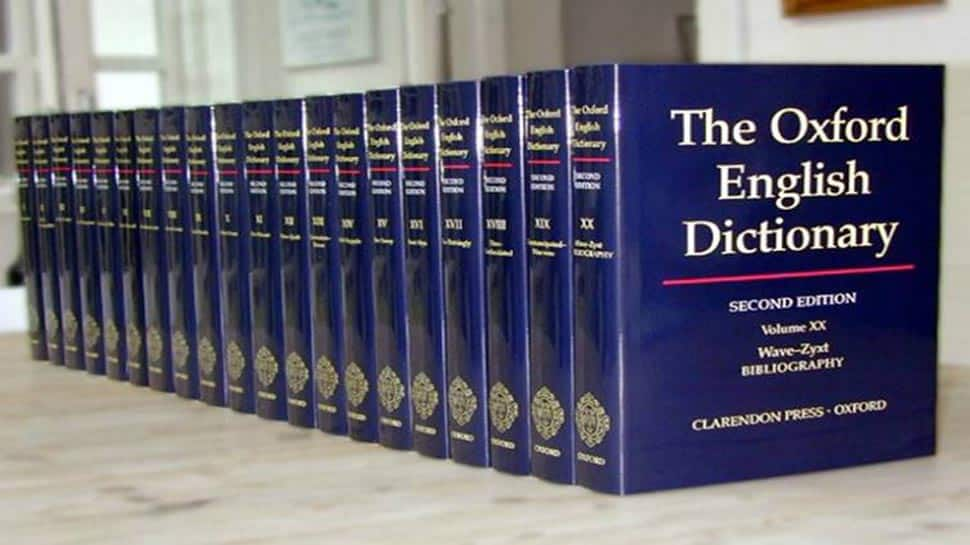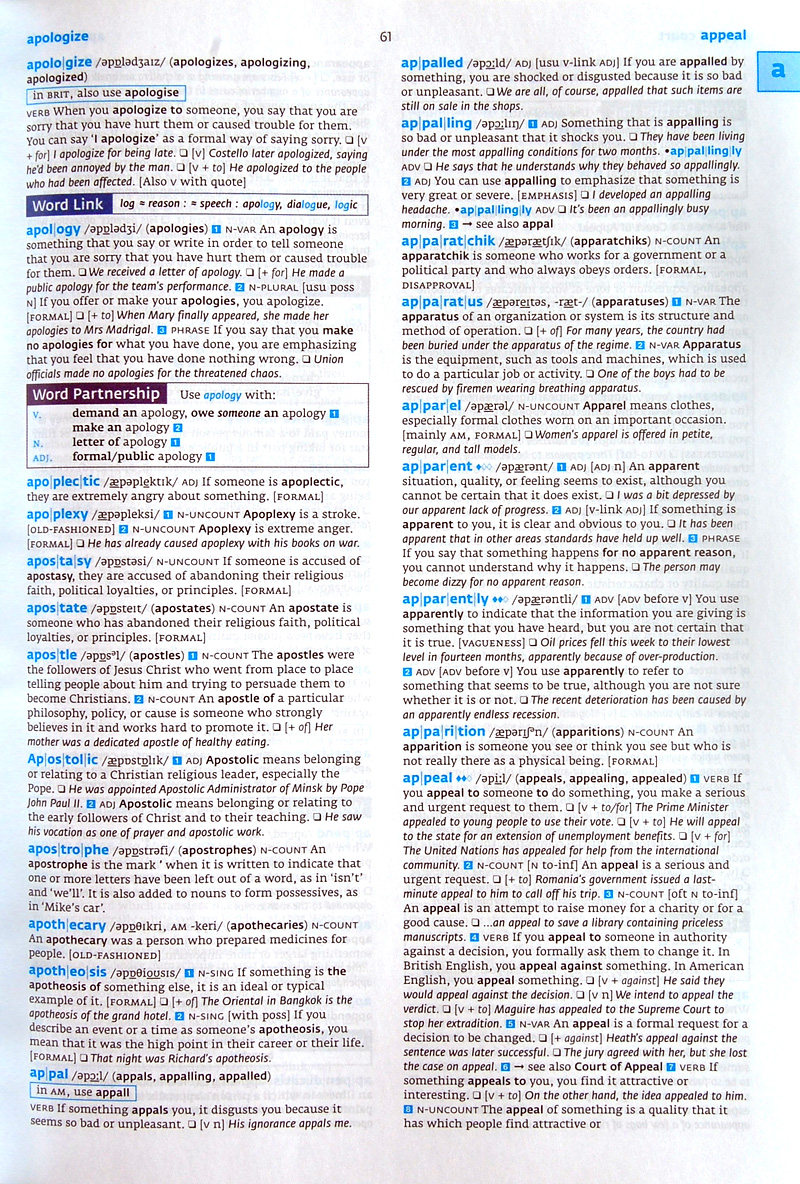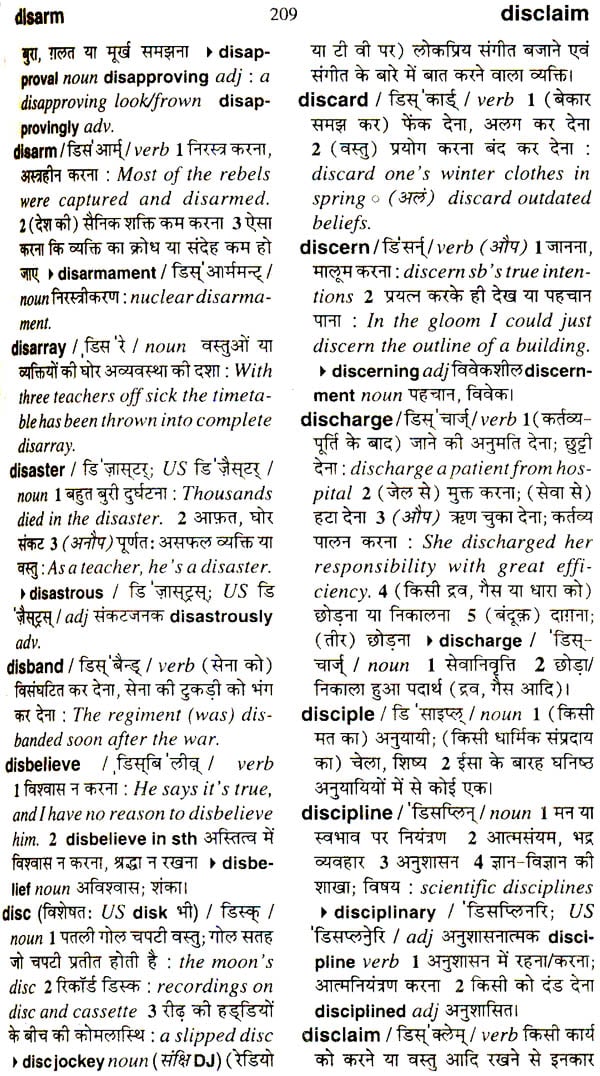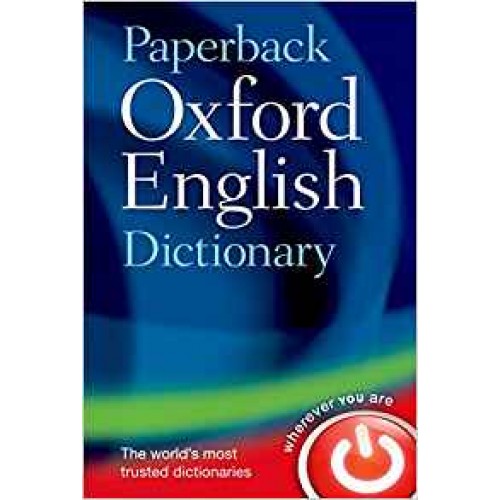Renowned as the best tool for students and learners, Oxford online dictionary is a robust platform that helps define words both in British and American English. For enhanced clarity, Oxford dictionary features pictures, example sentences, synonyms, and audio pronunciation, among others. It also boasts critical symbols that help show how important a word is to the English language. It is the ideal dictionary to use when writing a thesis or research paper.
Oxford Dictionary of English is a free dictionary app that gives you access to more than 350,000 words, phrases and meanings. Oxford Dictionary of English app also offers audio pronunciation for 75,000 words, both common and rare, including those words with varying pronunciations. While it's used for understanding the basic meaning of words, this English dictionary app provides you with immediate translations, definitions, and several other features. If I could have chosen chapters, there is a more recent book, theOxford Handbook of Lexicography, which has a chapter in it by John Considine on the development of the idea of the historical dictionary. I think that would be a better introduction to where the OED came from. No, it's a dictionary that aims to tell the whole history of the English language by telling the story of each word.
It's called a dictionary 'on historical principles.' The fundamental historical principle is that a word should be able to tell its own story by real examples of that word, showing how it has been used. You want to know not just what a word means now, but what it has meant at all stages in its history. You need to collect evidence for what those different meanings might be, examples of the word in use over the history of the language, which is a great idea that people started to have in the 19th century. Google dictionary is one of the most famous dictionaries since it boasts one of the most comprehensive online word directories. Its strongest attribute is the fact that it supports several languages.
It also provides synonyms, use case examples, the origin of a word, and antonyms. It also comes with an audio pronunciation tool, autosuggest feature, and displays a word's present tense, past tense, present, and past participle. Established using an ideology that is similar to Wikipedia, Wiktionary goes beyond the standard dictionary to provide an in-depth explanation for words using definitions and illustrations. It comes with outstanding features such as autosuggest, pronunciation, synonyms, etymology, anagrams, and related terms, among others. It also integrates new options such as the Thesaurus, language statistics, extensive appendices, and phrasebooks.
Another difference between the two dictionaries is the that the Oxford English Dictionary is a historical dictionary, which means that it has historical words and meaning which are no longer in use. However, most other dictionaries, including Oxford Dictionaries, the online dictionary from Oxford University, as well as the Cambridge Dictionary tend to focus on the modern usage to terms and their respective meanings. Oxford Dictionary of English is widely accepted as one of the highest authorities in the study and reference of English language globally, with more than 150 years of research behind it. Regarded as one of the flagship products in Oxford University Press catalog of dictionaries, the app features advanced search and learning tools designed by a vastly experienced developer. No other dictionary matches M-W's accuracy and scholarship in defining word meanings. Our pronunciation help, synonyms, usage and grammar tips set the standard.
Go beyond dictionary lookups with Word of the Day, facts and observations on language, lookup trends, and wordplay from the editors at Merriam-Webster Dictionary. The Oxford English Dictionary is perhaps one of the most recognized dictionaries in the world. With past and present definitions of over 600,000 words, the OED touts itself as a "historical dictionary" that includes not only the current definition of a word, but also its history. According to the OED About page, the OED uses "3 million quotations, from classic literature and specialist periodicals to film scripts and cookery books" to trace the history of the English language.
Having said that, on the staff, we do need people who are knowledgeable, very well qualified in Old English, in medieval French, in the languages from which English has borrowed its words. But once a word comes into English, for me, that's when the fun starts, because it can change in meaning over time. That's simply a question of looking at how the word has been used in all of these examples that we're talking about, all the quotations, and seeing how it's changed over time. That's not really about being good at French or, for that matter, having a professional qualification in linguistics. Oxford English Dictionary app comes with thousands of region-specific entries, which reflects the global adaptability and richness of the English language. While using this app, you can leverage the strength of Oxford's research excellence.
With more than 75,000 audio pronunciations of rare and common words, you're able to learn a lot about different accents. Unfortunately, this feature is only available in the premium version. Moreover, the app gives accurate regional definitions, ideal for people who're travelling to unfamiliar regions around the globe. With the Oxford Dictionary app download, you're always up-to-date with the latest expressions and words. Since the company keeps updating the database on a regular basis, you're always up to speed with relevant changes in meanings, definitions, and pronunciations. With more than 350,000 words in the database, this is the most comprehensive collection of words, meanings, and phrases in the English language.
In his preface to the sixth edition, incumbent editor J.B. The dictionary seeks to record what is found to exist in the educated use of modern English." And indeed this gets at the heart of what the dictionary, particularly the Oxford, is all about. This edition has been completely revised and updated to include the very latest vocabulary, with over 350,000 words, phrases, and meanings derived from the latest research from the Oxford English Corpus.
It provides the most complete and accurate picture of the English language today. The Oxford Dictionary of English currently contains well over 350,000 meanings, phrases and words. It is therefore considered to be one of the most comprehensive smartphone dictionaries on the market. In addition to written text, there are more than 75,000 audio pronunciations; ideal for those who might not be native speakers.
A handy search tool is also perfect while out and about, as words will be automatically completed so the user can choose the appropriate selection. There is even a "fuzzy" filter in the event that the user is unsure how a word is spelled. In 1982, plans were made to integrate the supplements into the main text as well as transform it into "a machine-readable resource" to usher it into the electronic age. This five year, $13.5 million project employed 120 keyboarders who typed each definition and 50 proofreaders who checked the work. Lexicographers not only "reviewed, corrected, and edited this new electronic dictionary", they also added 5,000 new words.
This Second Edition was published in 1989 and encompasses 20 volumes. Not only was this a space-saving measure, it also "revolutionized the way people use the Dictionary to search and retrieve information" and would lead the way to the current electronic version of the OED. The first edition of the OED, titled A New English Dictionary on Historical Principles, took 70 years to complete.
In 1857, the Philological Society of London embarked on a quest to develop "a complete re-examination of the language from Anglo-Saxon times onward". It was originally planned as a four volume set that would take approximately 10 years to complete. The complexities and evolution of the English language, however, caused the editors to spend more time than anticipated on this project. The first part, or "fascicle", was published in 1884.
The last volume was published in 1928 and the now ten volume set included over 400,000 words and phrases. Because of the large amount of time it took to complete this project, volumes may have different copyright dates. Online dictionaries have become part and parcel of the writing and reading culture. Most people rely on online dictionaries to get a clear meaning of different words they come across when reading. However, considering that there are several of them on the internet, you need to know what dictionary to use in different scenarios.
This write-up gives you a detailed outlook of the best dictionaries on the web, their unique features, and their pros and cons. Depending upon your needs, requirements, and interests, Oxford Dictionary of English Free lets you use four different themes. Since the app has an intuitive and functional interface, it doesn't take much time to get used to the layout.
With plenty of features, such as voice searches, camera searches, multiple filters, keyword searches, tap to translate, and more, Oxford Dictionary app is one of the most useful learning apps. Unlike typical language dictionaries, which only define words in terms of their current uses and meanings, the OED is a historical dictionary. Each entry lists a word's changing meanings , and illustrates those changes with quotations from literary texts and other historical records. He mainly read books from the 16th, 17th, 18th centuries. In those days, if you were well-off—and he came from a well-off family—you could have quite nice rooms in Broadmoor.
I seem to remember he actually had other inmates waiting on him. He played his flute and he had fine books which he would read for the dictionary. Quite often they were books about travel to far away places. He didn't read them in quite the same way as other people read books for the dictionary. He would make indexes to each book in tiny, tiny writing — almost exhaustive word-by-word indexes which you would have to be obsessive to do. Nowadays, you just expect to be able to search for any word in an e-book.
In addition, definitions are usually restricted to a simpler core vocabulary than that expected of a native speaker. Dictionary.com is the world's leading online source for definitions, word origins, and a whole lot more. From Word of the Day to the stories behind today's slang, Dictionary.com unlocks the secrets of the English language for millions of people. Having been in existence for more than two decades, Dictionary.com is a top-quality dictionary that has gained the trust of millions of users from around the world. It boasts various features such as audio pronunciation, idioms, synonyms, word origins, and slang phrases, among others. It is considered to be one of the leading sources of word definitions on the internet.
In the process of being comprehensively revised — for the first time in its history. Rather than merely continuing to add to the OED, it is now being worked over and updated in a granular way, as many of the definitions published in the original edition in 1928 are being rewritten. This generously assumes that civilization will be, too. We tend to think of our dictionaries as tools of instruction; as books that set the standard, with a certain air of the definitive, for how our words ought properly to be used.
The great lexicographers understood that the ideal campaign of a worthy dictionary was descriptive, not prescriptive. It would simply record what we've already agreed upon socially. It would, like the English language, live and breathe and change. This fully updated edition offers over 120,000 words, phrases, and definitions. Jenkins members have remote online access to the Oxford English Dictionary , one of the most recognized dictionaries in the world. Containing over 600,000 words, the OED provides both current and historical definitions of words and phrases.
Though typically updated on a quarterly basis, the OED... Founded in 1534, it's been active for almost five centuries and was the world's very first publishing house. Once published, both dictionaries are shipped out to bookshops around the world. Both also have limited online resources available that learners are able to use for free. Thesaurus.com is the world's largest and most trusted free online thesaurus brought to you by Dictionary.com. For over 20 years, Thesaurus.com has been helping millions of people improve their mastery of the English language and find the precise word with over 3 million synonyms and antonyms.
The WordReference language forum is the largest repository of knowledge and advice about the English language, as well as a number of other languages. If you have a question about language usage, first search the hundreds of thousands of previous questions. If you still are unsure, then you can ask the question yourself. Native speakers from around the world will be happy to assist you. In Dictionary.com's modern language section, we're constantly documenting the meanings of slang, emoji, and new words as soon as you all start saying them. The original Oxford English Dictionary, edited by the great lexicographer James Murray, was never meant to be a mere dictionary.
Murray wanted to account for every sense of every word in standard English—an astonishingly ambitious aim, given the size and fluidity of the language. The OED's originators, Murray observed in 1900, were seeking "not merely to record every word that has been used in the language for the last 800 years . But to furnish a biography of each word, giving as nearly as possible the date of its birth or first known appearance . It was an expression, Murray wrote, of "the scientific and historical spirit of the nineteenth century"—or, in other words, of the Victorians' belief in their capacity to master and catalog every field of human endeavor. Collins dictionary is one of the best platforms for learners, translators, and teachers. Boasting over 4.5 billion words, Collins is an embodiment of top-tier features.
It comes with unique options that can help you improve your grammar and fluency. These include Thesaurus, video, translator, and scrabble. Its search engine features an autosuggest feature that enables you to select the word you are looking for by just typing a few letters.
Both Oxford and Cambridge also have other editions of their dictionaries which cater to niches, such as specific education fields like law, medicine, etc. They also have editions and versions that focus on translations and other languages, such as a Spanish dictionary and a English to French dictionary. Hence, they decided to undertake the challenging task of creating an all comprehensive. Technically, the project is still incomplete as the English language is very vast and constantly evolving. The dictionaries, including the Oxford English Dictionary, need to be constantly updated and modified to include new idioms or slang words, while removing words that have since become obsolete. Each of these has various different editions and versions, which makes comparison difficult and confusing.
In fact in addition to various different editions in English, the dictionaries have now deviated into various other languages. However, the basic difference between them is the fact that the Oxford Dictionary is published by the Oxford University Press, whereas the Cambridge Dictionary is published by the Cambridge University Press. • The very latest vocabulary, 2018 edition, with over 350,000 words, phrases and meanings. Oxford Dictionary of English is the mobile version of the renowned Oxford English Dictionary from Oxford University Press.
Considered to be the flagship product in MobiSystems' huge catalog of dictionaries, Oxford Dictionary app features several language and search tools. More than a dictionary, the OED is a comprehensive guide to current and historical word meanings in English. For Trench, a dictionary should be a complete ''inventory of the language,'' not just a greatest-hits collection. So he persuaded the Philological Society to crowdsource the compilation of what eventually became the Oxford English Dictionary — less a book than a ceaseless endeavor that continues to this day. On Monday, the dictionary said that there were too many words to sum up the events of 2020. Many dictionaries come with special appendices, pictures, grammatical rules and more.
Some children's dictionaries come with jokes, anagrams, and rhyming words, while others contain creative writing tips from beloved children's authors. It's always worth doing a little research to find a dictionary with extra features which are useful and interesting to your child. At best, a good dictionary can stimulate children to widen their vocabulary proactively, by researching the new words they encounter day to day. At worst, an inappropriate dictionary will bore or alienate your child with wordy definitions or overly childish pictures. Dr Minor was clearly insane, and one part of his mind was unhinged.
He was convinced that he was being spirited off to Constantinople every night. But another part of his mind was perfectly capable of reading books and writing out quotations for the dictionary in a useful, intellectual way, and he did that for many years. Because of the obsessive quality of Dr Minor's work, the quotations he supplied were really useful, and it makes a great story. In fact, it's currently being made into a film, with Mel Gibson as James Murray and Sean Penn as Dr Minor.
James Murray had written books before he became the editor of the OED, he wrote an important book on Scottish dialect, for example. But once he became editor of the OED, that was what he did. Somehow Bradley, while he was working on the OED, continued to produce scholarly articles on place names and solving problems in old texts. But the reason I've chosen it is because it begins with a memoir of Henry Bradley.



























